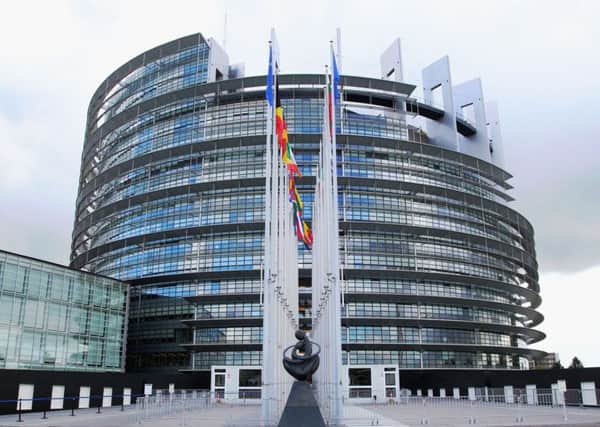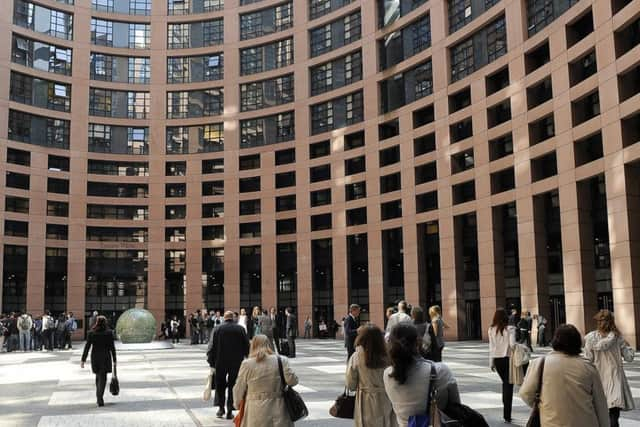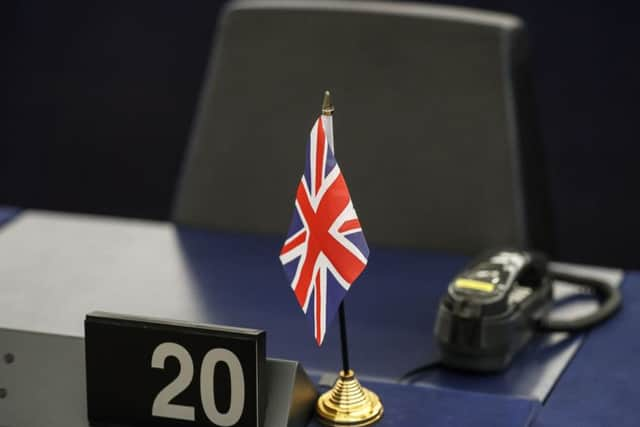Chris Burn: EU's labyrinths of power will not be easy to escape


The baffling building opened in 1999 and has been confusing visitors ever since.
Even Italian astronaut Umberto Guidoni, the first European to set foot on the International Space Station, once turned up late to speak to students visiting the Parliament – only to find out they had got lost too. He joked that “it was easier to find your way in outer space than in Strasbourg’s corridors”.
Advertisement
Hide AdAdvertisement
Hide AdThe site contains a 750-seat horseshoe-shaped debating chamber, more than 1,000 offices for MEPs and 18 halls and committee rooms, as well as a catering centre and service areas.


Architecture-Studio, the company behind the dubious design, make no mention of it being inspired by a MC Escher painting or a trip down the rabbit hole with Alice in Wonderland.
The literal difficulties of negotiating the corridors of power in the European Parliament for anyone not deeply familiar with them presents a worrying parallel with the challenges facing the Government as Article 50 is triggered. The phoney war of words is about to turn into a gruelling negotiating process on how the UK’s departure will impact on all manner of industries, jobs and people’s lives and how they can live them.
The performance of Brexit secretary David Davis in front of MPs this week does not appear to bode well for a process that is going to involve hammering out an agreement that meets the high expectations created by the Leave campaign, and continued by the Government, while also winning the support of all the remaining 27 member states and not crossing the European Parliament’s “red lines” on the core EU principles.
Advertisement
Hide AdAdvertisement
Hide AdDavis provided a series of concerning answers as he was probed on the Government’s preparations for the negotiations – most notably being unable to provide the committee with an estimate of the cost of Britain leaving with “no deal” on future trading arrangements with EU, saying it might be a year before he could offer any such figures.


Davis confirmed that leaving under World Trade Organisation rules would mean tariffs of 30 to 40 per cent on agricultural exports and 10 per cent on cars, the loss of free or reduced cost healthcare in Europe for travellers and passporting rights for financial firms, as well as departure from the EU-US Open Skies deal for air transport.
Of course, you do not have to spend much time in Strasbourg to find plenty to criticise about the European Union – not just the architecture of the Parliament building but its very existence is hard to justify.
For its detractors, it is the ultimate representation of EU waste, home to the notorious “travelling circus” of thousands of politicians, diplomats and hangers-on who decamp from Brussels once a month at eye-watering costs to taxpayers to conduct the same meetings they could have had in Belgium.
Advertisement
Hide AdAdvertisement
Hide AdIndeed, one confusing circuit of the Parliament building brought about a chance encounter with an almost satirically-perfect representation of EU excess– an opera singer in full costume performing for MEPs and their staff.


Even passionate Europhile MEPs have repeatedly backed calls for the EU to centralise its operations in Brussels, but France is determined that sessions remain in Strasbourg despite the costs.
A 2014 report by the European Court of Auditors suggested that the EU could make a one-off saving of £538m by selling its Strasbourg buildings, with an annual saving of £99m from the costs of thousands of people relocating each month.
European economic think-tank Bruegel suggested one way out of the current mess would be for European Parliament buildings to become home to a European University.
Advertisement
Hide AdAdvertisement
Hide AdIn a report published last August, researchers said: “The cost of the European Parliament ‘travelling circus’ between Brussels and Strasbourg was highlighted by some Brexit supporters as one of the 20 reasons why UK citizens should vote in favour of leaving the EU.”


For its supporters, however, the Parliament’s presence is a hugely powerful representation of the European project’s ideal of peace, freedom and reconciliation in a beautiful city on the French-German border that has been on the frontline of many of the bloody conflicts between the two nations.
One of the European Union’s key principles is to ensure its members are economically inter-dependent and therefore more likely to avoid conflict. Now top EU officials are warning that Britain may soon be placed in an unpalatable position as a long-term trade deal is hammered out where it continues paying into the EU budget while losing its membership status and veto powers over ideas it does not support. Such an ‘transitional’ arrangement, it is warned, could be in place for up to a decade.
While such a reference may not pass muster with the high-brow opera buffs at the European Parliament, this is reminiscent of those famous lines from the Eagles’ song Hotel California: “You can check-out any time you like / But you can never leave.”